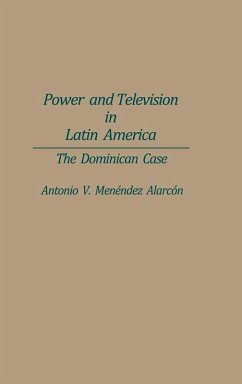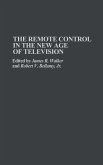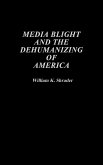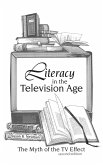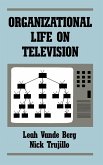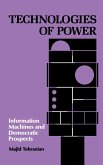This volume examines the relationship between the development and functioning of television and concrete political and economic processes in the third world. Antonio Menendez Alarcon focuses on the Dominican Republic, where television was introduced by a dictator (Trujillo) as a form of political power, and where the old dictatorial forms have permeated the newer, supposedly democratic media. The author looks at the relationship between television network organization and control and programming; the industry's long-range effects on culture and development; and the extent to which television contributes to the free marketplace of ideas. The methodology encompasses a set of techniques, including field research in the political democracy of the Dominican Republic (in-depth interviews and non-participant observation), content analysis, and document analysis. The results of the author's study reveal that even though some dissent is tolerated, the overall message diffused in Dominican television corresponds to the basic elements and interests of a business-oriented society; hence, the widely accepted assumption of the right to hear different opinions is subverted by the commercial role of television. According to the author, television portrayals of elections constitute dramatized rituals of democracy that legitimize the myth of political equality and collective self-determination while leading citizens to apathy and political resignation. Power and Television in Latin America should be read by all students and scholars interested in critical theory of mass media, production of culture, and sociology of Latin America.
Hinweis: Dieser Artikel kann nur an eine deutsche Lieferadresse ausgeliefert werden.
Hinweis: Dieser Artikel kann nur an eine deutsche Lieferadresse ausgeliefert werden.

